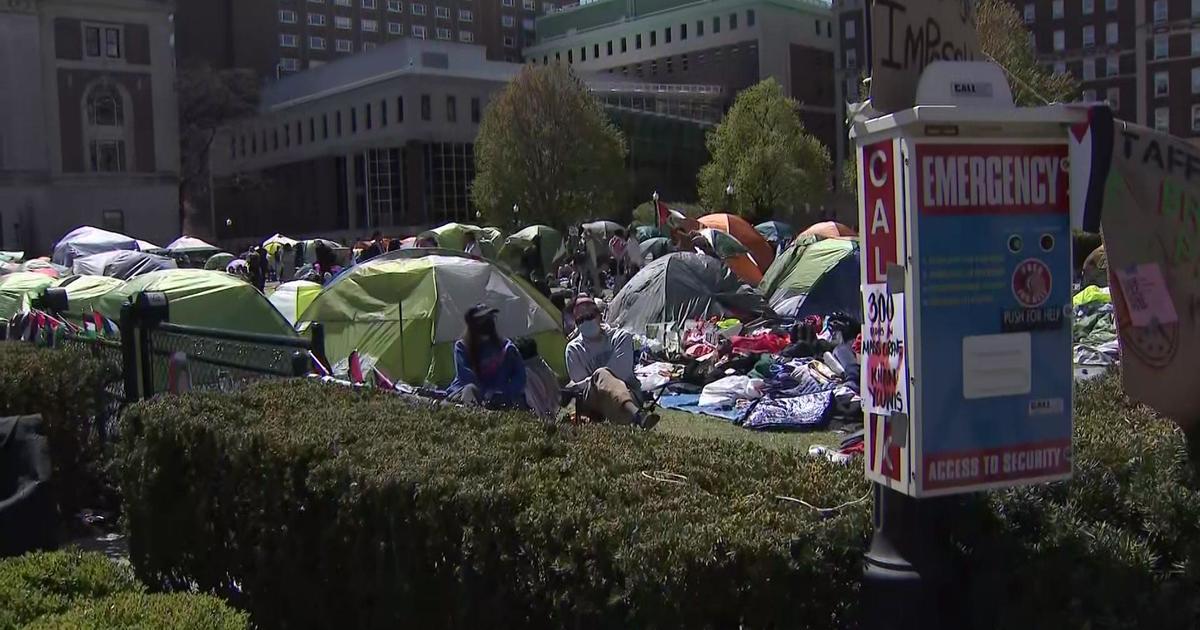Proposals Would Shrink NJ Public Worker Health Benefits
TRENTON, NJ (CBSNewYork/AP) -It's a hot-button issue that many feel needs to be tackled for New Jersey - and other states - to dig their way out of the current fiscal mess.
Gov. Chris Christie and state Senate President Stephen Sweeney both agree that public workers need to pay more for health benefits. But they disagree on how much.
Podcast
WCBS 880's Levon Putney with comment from Christie, Sweeney, and the CWA
Christie wants to make the health insurance system more like the private sector - or the federal government - with employees paying about one-third of the costs of whatever benefits plan they choose. The government would pick up the other two-thirds. This proposal requires making some benefits changes.
On Tuesday, Senate President Stephen Sweeney unveiled his plan, which also introduces more choice into the system and calls for employees to contribute between 12 and 30 percent, depending on income.
"Honestly, the taxpayers can't afford to foot the bill anymore," said Sweeney. "My goal is to put at least five plans out there, if not more. So, as I'm asking you to pay more, you can pick how much health care coverage you have."
Sweeney's plan would be phased in over seven years for families and four years for single-coverage employees.
Those making up to $30,000 a year would be expected to pay up to 12 percent of their premiums at full phase-in, while those making $100,000 or more would be required to contribute 30 percent.
Current retirees would not be expected to contribute to their health care premiums. But future retirees would be expected to contribute a fixed amount each year - between $2,280 and $5,700, based on pension level. That would also be phased in over seven years. His plan also encourages bulk purchasing and use of generic drugs.
"This is about saving local taxpayers hundreds of millions of dollars a year when fully phased in, while at the same time not putting such a heavy burden on workers that they can't afford benefits,'' Sweeney said.
Christie said Tuesday he is "encouraged'' that Sweeney has put up a plan to help stabilize the underfunded system, but said the Democrat's proposal falls short.
"It's not nearly enough reform as we need, but a good starting point for conversation,'' Christie said.
The health benefits system is underfunded by $67 billion, and health care for employees and retirees consumes an increasing share of state and local budgets.
Both plans amount to a significant increase from the 1.5 percent of salary employees now pay. However, both proposals are in the beginning stages and neither has been acted on. Any reform must be voted on by the Senate and Assembly - both controlled by Democrats - and signed by the governor.
The 1.5 percent contribution enacted last year is a small fraction of the $19,000 a year it costs to insure the average public employee with family coverage.
Hetty Rosenstein, spokeswoman for the Communications Workers of America, the largest state worker union, criticized Sweeney's proposal as intrusive on the collective bargaining process and creating bad policy.
"Basing employees' costs on a percentage of premium unfairly shifts the risk for the health of the entire state work force onto individual employees, while delivering an enormous pay cut to thousands of middle-class families; creating a complicated tiered plan structure will lead to spiraling costs for families with sick children,'' Rosenstein said. "Health care coverage has always been part of the mix of wages and benefits that workers negotiate on their own behalf.''
Assembly Speaker Sheila Oliver said she is aware of the proposal and thinks there are many elements the Assembly can embrace. She said the Assembly will do its own review of the proposal and will discuss it with members.
The governor and Senate president also differ on pension system reforms, with Christie pushing for more concessions from public workers than Sweeney has proposed.
Christie wants to raise the retirement age, require all workers to contribute 8.5 percent of their salaries toward pension benefits and roll back a 9 percent pension increase granted a decade ago. Sweeney wants to create labor/management boards that would set annual pension contributions based on the health of the system. He would require workers to pay more to keep the pension enhancement.
The pension system for government workers, teachers, police, firefighters, judges and teachers is underfunded by $54 billion.
Christie said Tuesday his suggested changes would cut the unfunded liability in half in 30 years, while Sweeney's proposals would double the underfunding to $109 billion in 30 years.
Christie failed to make a $3.1 billion pension payment this year, another in a series of skipped or greatly reduced installments by governors of both parties over most of past 20 years.
Sweeney has said he is reluctant to ask for additional sacrifices from workers unless the state begins paying its share.
On the union being upset by the proposals, Gov. Chris Christie said, "Ohhhh, I'm sure they are."
But Christie says when the CWA and other unions don't get what they want by bargaining, they go to lawmakers.
"Well, what's good for the goose is good for the gander," said Christie.
(TM and Copyright 2011 CBS Radio Inc. and its relevant subsidiaries. CBS RADIO and EYE Logo TM and Copyright 2011 CBS Broadcasting Inc. Used under license. All Rights Reserved. This material may not be published, broadcast, rewritten, or redistributed. The Associated Press contributed to this report.)



